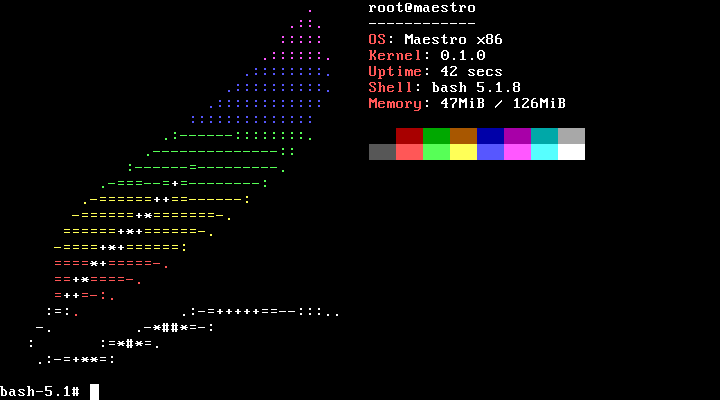Enter Maestro, a unix-like monolithic kernel that aims to be compatible with Linux in order to ensure wide compatibility. Interestingly, it is written in Rust. It includes Solfége, a boot system and daemon manager, maestro-utils, which is a collection of system utility commands, and blimp, a package manager. According to Luc, it’s creator, the following third-party software has been tested and is working on the OS: musl (C standard library), bash, Some GNU coreutils commands such as ls, cat, mkdir, rm, rmdir, uname, whoami, etc… neofetch (a patched version, since the original neofetch does not know about the OS). If you want to test it out, fire up a VM with at least 1 GB of ram.
Finally, some “exciting” news, 2031 will be the year of the linux desktop(and Maestro)!
Ok, I’m out of the loop and I’ve seen this often enough that I have to ask; why do people always bring up “written in rust”? No one points out that a given project is written in C++/C#/python/ruby etc, yet we keep seeing it for rust.
Programmers are hyped about Rust. It’s a programming language that has a legitimate chance to replace C and C++ for performance critical applications. So any new project in Rust increases the possibility of a future where C and C++ are programming languages of the past.
It’s interesting, but with Linux and BSD already available in many different flavours do we really need it?
I mean what use case would it be better in except maybe an extreme rust enthusiast.
It isn’t needed to be required for one to like developing it.





